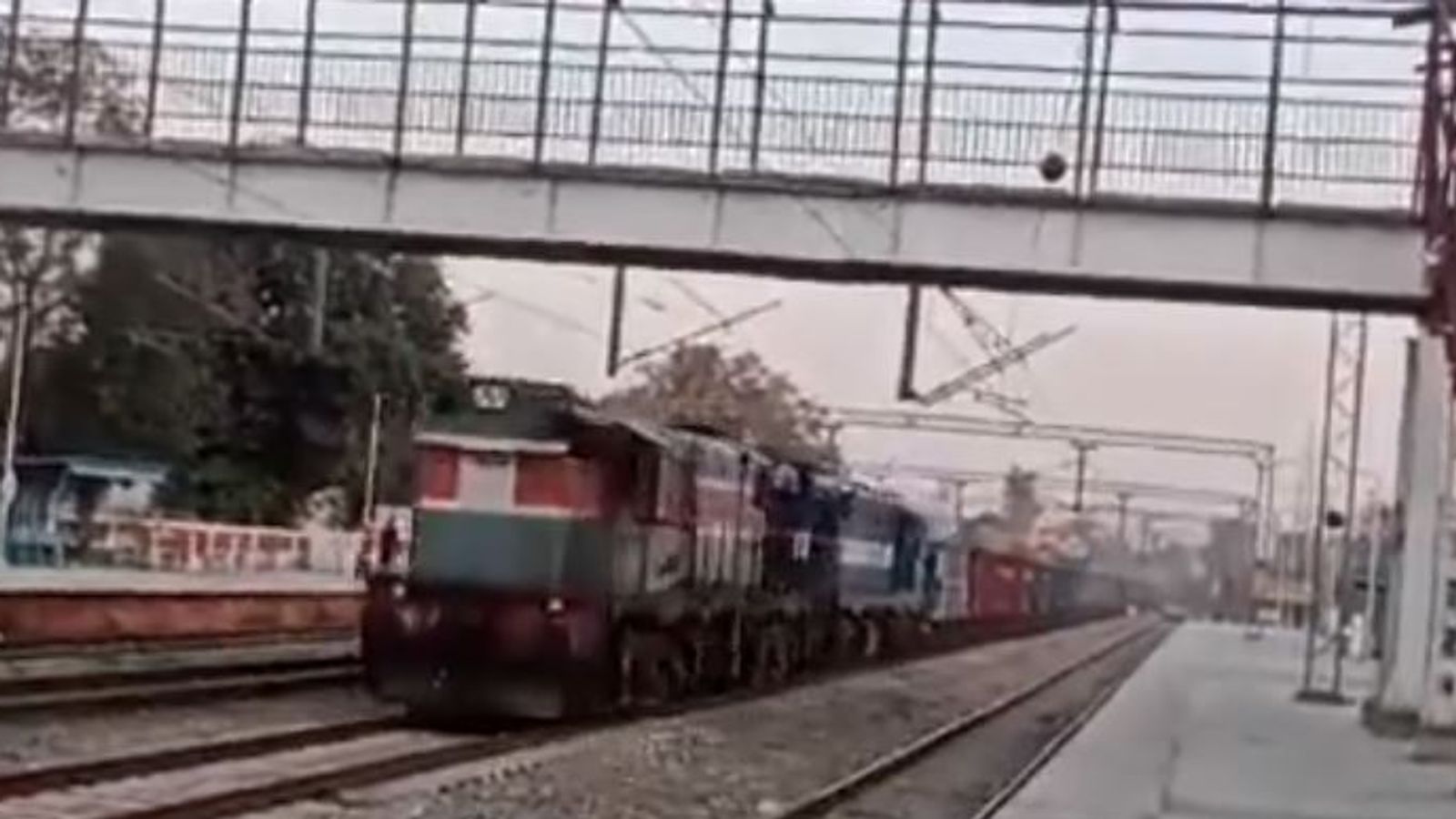An investigation has been launched in India after a driverless goods train travelled more than 43 miles (70km) at high speeds before coming to a stop, reports have said.
No one was injured and a potentially major accident was averted after officials helped reduce the speed of the train by placing wooden blocks on the track in front of it, officials said.
The 53-wagon train was on its way to Punjab from Jammu in northwestern India on Sunday morning, when it stopped in Kathua to change crew, the BBC said.
When the driver and his assistant left the train, the handbrake wasn’t applied, and the train ran away down the sloping track, according to NDTV.
It reached an estimated speed of nearly 62mph (100kph) as it moved through about five stations before it was stopped.
Videos shared on social media showed the train, which was carrying chip stones, zooming past several stations at high speed.
Local officials told the Press Trust of India (PTI): “The train was stopped after a railway official placed wood blocks on the tracks to stop the train.”
Satellites monitoring ‘invisible’ hazards on Earth is prime example of India’s galactic private space industry
‘We can be killed in the UK at any time’: Sikh activist fears for life after being named on Indian ‘hit list’
India: Tear gas dropped from drones as protesting farmers march towards New Delhi
The train came to a stop in the village of Uchi Bassi, NDTV said.
“No casualty was reported in the incident,” NDTV said, quoting officials.
Read more:
Never-before-seen Navalny interview
Indian Sikh activist in UK fears for his life
Revealed – India’s private space industry
HS2 dividend benefits North and Midlands
The incident took place between 7.25am and 9am local time, the Press Trust of India, quoting officials, said.
Railway crossings along its path were shut as a safety precaution once the alarm was raised.
Officials are investigating what happened to make sure there is no repeat, the PTI said.
“The exact reason of the incident is yet to be ascertained,” NDTV said, quoting officials.
In June, more than 280 people died in a train crash in the Balasore district of Odisha, near the Bay of Bengal.
India’s worst rail accident was in 1981, when at least 800 people died after seven coaches of an overcrowded passenger train blew off the track and into a river during a cyclone near the Nepal border.
Run by state monopoly Indian Railways, the network is the fourth largest in the world and transports 13 million people every day as well as moving 1.5bn tonnes of freight annually along more than 40,000 miles (64,000km) of tracks.





